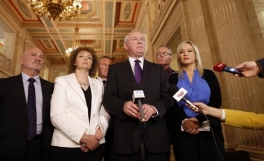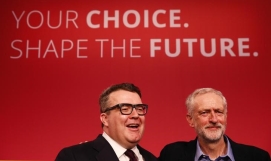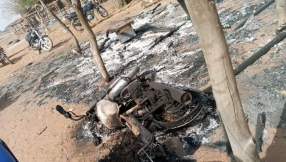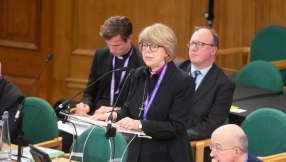Protestant unionist and Catholic nationalist parties in Northern Ireland will begin talks on Monday to try to save the power-sharing government that has ended decades of sectarian violence.
The devolved administration is on the brink of collapse after a murder linked to former members of the paramilitary Irish Republican Army (IRA) prompted first minister, Peter Robinson, to step aside last week.
The government has commissioned an independent assessment of paramilitary activities in Northern Ireland to be published by mid-October which they hope will help conclude the talks.
The review will be carried out by UK security services and the Police Service of Northern Ireland.
"Recent events have highlighted the continuing impact and legacy of paramilitary organisations in Northern Ireland. This needs to be tackled as a matter of urgency," said Northern Ireland Secretary Theresa Villiers in a statement.
The review is "a positive step forward," Ulster Unionist Party leader Mike Nesbitt said.
However BBC correspondent, Vincent Kearney said that the review was unlikely to tell Villiers anything she did not already know.
A 1998 peace deal largely ended three decades of sectarian violence between Catholics who want a united Ireland and Protestants who want Northern Ireland to remain British that killed 3,600 people.
But one of the key planks of that deal was undermined last month when police said the IRA was likely involved in the murder of a former operative, despite assurances from allies Sinn Fein, which shares power in parliament, that the group had "left the stage".
Earlier this week, Villiers proposed the creation of an independent watchdog to monitor paramilitary groups and Ireland's foreign minister said the one-off assessment announced on Friday did not preclude future monitoring arrangements being applied.
Northern Ireland's Democratic Unionist Party (DUP), which refused to commit to the negotiations until it was satisfied they would deal sufficiently with paramilitary activities, said it would participate.
"I am not in the business of wrecking devolution," said party leader Peter Robinson. "Today's statement by the Secretary of State is a welcome first step in demonstrating that the government are taking our concerns seriously."
Northern Ireland deputy first minister Martin McGuinness of Sinn Fein said on Twitter he was pleased the Unionist leaders would be present at the talks.
The negotiations will also try to find agreement on how the province, the region most dependent on government spending in the United Kingdom, will implement long-standing budget cuts dictated by London.
Additional reporting by Reuters.
















